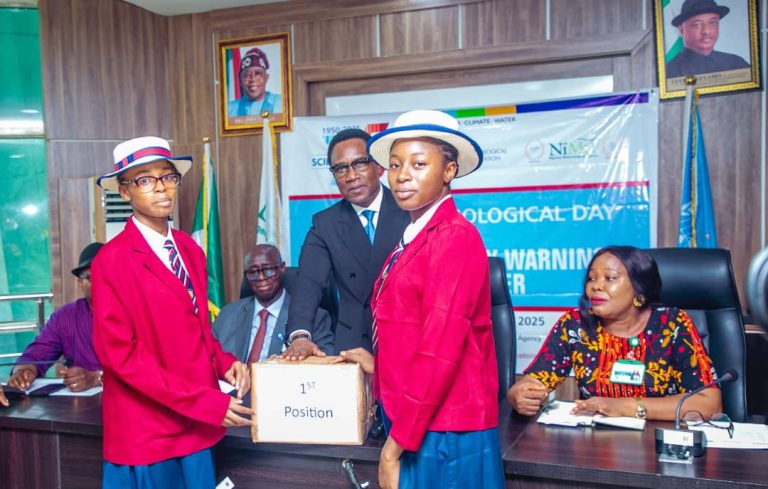From Sola Ojo, Abuja
As the world celebrated the 2025 World Meteorological Day, the Director General and CEO of the Nigerian Meteorological Agency (NiMet), Professor Charles Anosike, on Monday canvassed collective action to close the early warning gap,
This year’s theme, “Closing the Early Warning Gap Together,” highlights the global commitment to strengthening early warning capabilities.
Speaking at a special ceremony to mark the day at NiMet’s headquarters in Abuja Professor Anosike harped on strong collaboration, coordination and cooperation between national and international partners, policymakers, the private sector, and local communities especially the youth because government alone cannot do it.
According to him, “We must recognize that closing the early warning gap requires ALL – including”.
The NiMet boss used the opportunity to pay tribute to Professor Godwin Olu Patrick Obasi, former Secretary General, World Meteorological Organisation (WMO), an esteemed pioneer in many aspects of meteorology and climate who was one of the earliest scientists to recognize the role of early warnings in disaster risk management.
.
He noted that Investing in early warning systems not only saves countless lives and livelihood; “It generates ten times return on investment and strengthens economies”.
“Today in Nigeria, we at NiMet have remained at the forefront of advancing early warning systems through science-based weather and climate services.
“Our Seasonal Climate Prediction (SCP), daily weather forecast and bulletins, Impact-Based forecast and other publications have proven instrumental in disaster risk reduction across all socio-economic sectors.
“However, unprecedent weather extremes in past few years is surfacing early warning gaps such as inadequate finance and access to latest technologies, uncoordinated dissemination efforts, insecurity and maintainability of early warning systems must be proactively addressed”, he said.
The WMO representative in Nigeria, Bernard Gomez, who was present at the event shared a message from the WMO Secretary-General Celeste Saulo, reminding all that governments must lead the way, and that collaboration is key.
“Investing in National Meteorological and Hydrological Services isn’t just about forecasting—it’s about saving lives, strengthening economies, and securing our future. The time to act is now”, the WMO Secretary-General Saulo said.
